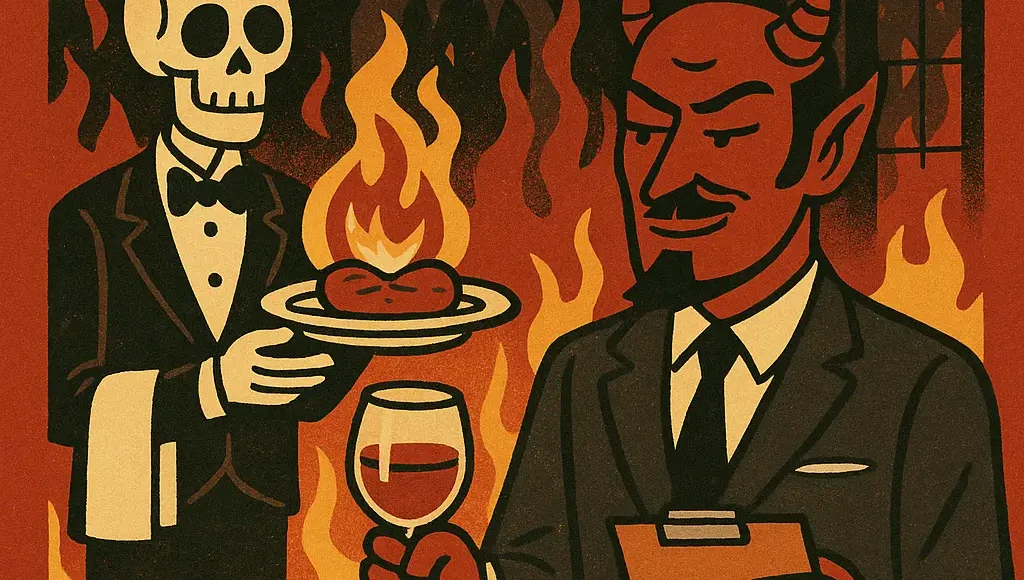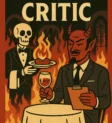Author’s Notes: Hell’s Kitchen Critic

Origin of the Recipe
This story began, quite simply, with the idea: What if a demon fell in love with food criticism?
It’s ridiculous. It’s theatrical. But it’s also a lens through which I could explore something I care about deeply: the intersection of absurd power and very human joy. I’ve always found something beautiful in the small rebellions we carve out for ourselves—whether that’s sabotaging a bureaucratic hellscape with butter, or rescuing a young cook’s dignity through an honest (if flambé’d) review.
The tone of Hell’s Kitchen Critic is intentionally big. Demons yell. Dishes explode. Everything is a bit too much. That’s by design. I wanted to build a world where whimsy could have weight, where exorcists mix mojitos, and where redemption arrives not in thunder, but in mousse.
Belzagor’s Real Deal
Bel is many things: critic, diva, reluctant mentor, and above all else, a creature of taste. But underneath the smoke and sarcasm, he’s a character I’ve come to care about. He’s a former functionary of hell who doesn’t turn good, exactly—but who starts to appreciate what mortals do best: create something fleeting, and make it matter.
He’s not trying to save the world. He just wants better food. But that desire—that pursuit of something transcendent in the ordinary—is its own kind of resistance. His arc isn’t about finding a soul. It’s about finding something worth savoring.
Marcel, the Straight Man (in Crocs)
Marcel was always going to be the foil. He’s awkward, overcooked by life, and utterly out of his depth. But there’s something quietly radical about a nervous culinary student who, instead of running from the demon he summoned, decides to follow him—because he sees there might be something to learn in all this chaos. Marcel grounds the story in genuine human emotion, and his presence makes the madness funny instead of merely farcical.
On Tone, Structure, and Genre-Bending
This story doesn’t fit neatly into genre boxes—and that’s part of the fun. It’s part buddy comedy, part culinary fantasy, part satire of both hell and haute cuisine. If it ever feels like The Bear met The Good Place in a Parisian alleyway and decided to review fine dining with flamethrowers… well, that was probably intentional.
What surprised me while writing it was how much emotion still snuck in. Between the jokes and soufflés, there’s something bittersweet in Belzagor’s refusal to go back to who he was—and in the reluctant community that forms around him despite every bureaucratic threat and existential flame.


